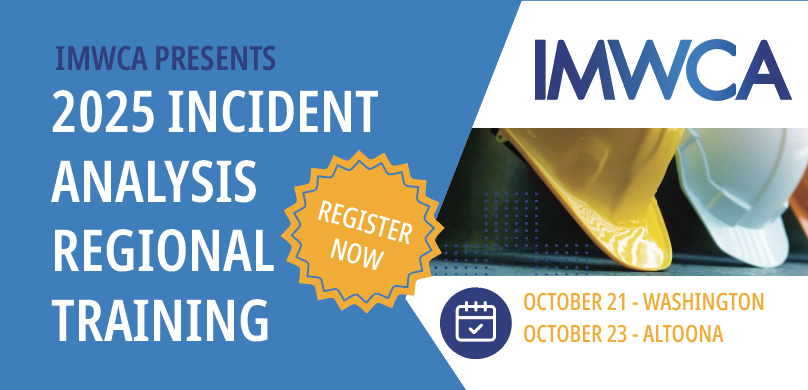
As part of IMWCA’s constant commitment to safety—both on and off the job—we want to take a moment to talk about something that may seem harmless at first glance, but can quickly turn dangerous: interacting with wildlife.
While you’re working outdoors, it’s important to remember one simple rule:
Do not approach, feed, or try to handle wild animals.
Why It Matters
Wild animals are unpredictable. Even if they seem calm or friendly, they can bite or scratch when they feel threatened or cornered. A single bite or scratch can lead to serious injuries, infections, or even diseases like rabies.
Every year, people across the country are injured because they get too close to animals like raccoons, squirrels, snakes, stray cats, or even birds. What starts as curiosity or kindness can quickly become a medical emergency. Additionally, wildlife can carry diseases such as Rabies. Currently, in Iowa, the cost of the rabies series is $20,000-$25,000. This can have a major impact on your entity’s MOD factor and premium. For a situation that is definitely avoidable.
Common Situations to Avoid
- Feeding wildlife – This can cause animals to lose their natural fear of humans, making them more aggressive.
- Trying to “rescue” baby animals – Often, the parents are nearby. Getting involved can cause unnecessary stress or provoke an attack.
- Approaching animals for photos or fun – This can agitate the animal and put you at risk.
- Handling dead or injured animals – These situations still carry disease and injury risks. Call animal control instead.
Your Safety Is the Priority
If you see an animal acting unusually or hanging around a work area:
- Do not try to scare it off or catch it.
- Do not attempt to feed or pet it.
- Report it to animal control or your appropriate authority.
Remember: We are guests in their habitat. Our best approach is to observe from a distance and let wildlife stay wild.
If your job duties entail possible exposures to wildlife, IMWCA highly recommends that employers provide protective equipment for these situations. This can include something as simple as welding gloves, which will provide substantial protection against the majority of animal bites.
Final Thought
Let’s keep safety top of mind—not just with equipment and procedures, but in how we interact with the environment around us. Staying cautious around wildlife protects you, your coworkers, and the animals themselves.

Indemnity Benefits are Tax-Free
In Iowa, most workers’ compensation benefits are not taxable at the state or federal level. In most cases, injured workers do not have to report the benefits as income. An exception can occur if the workers’ compensation benefits are combined with other benefits such as Social Security Disability Insurance (SSDI). This could lead to a taxable portion of the benefits.
Injured workers who receive indemnity benefits as part of their workers’ compensation claim will not receive a 1099 or W-2 from IMWCA. In addition, if there is a settlement as part of the claim, this money is not subject to taxation either.
If the injured worker has any questions about their taxes or what is considered income, they should be directed to speak with their tax professional or financial advisor.

2025 Incident Analysis Regional Training
We have two training dates remaining. Register now! At this free session, you’ll discover the critical steps to take when handling workplace incidents, learn why timely analysis is key, and get expert answers to your questions.

Register Now: Workers’ Compensation Virtual Round Tables
Gain insights and share ideas in our quarterly virtual round tables. Each session features a short presentation followed by an open discussion. Submit your questions in advance to ensure a customized experience.
- November 18, 9:30 a.m. – Importance of Updated and Enforceable Safety Policies
- Perfect for monthly safety meetings.
All sessions are recorded.
Budget Season is Fast Approaching
Budget season is approaching, and we understand that IMWCA members utilize various methods to allocate workers’ compensation premium costs across their departments. We’ve found that some members are interested in distributing premium costs based on each department’s incurred losses.
IMWCA’s Cost of Risk Allocation report can help by adjusting each department’s premium according to their incurred losses. This report is designed to identify which departments are responsible for specific losses, allowing for a more equitable distribution of premium costs. For more information please contact Underwriting Manager, Andrew Justice, at andrewjustice@iowaleague.org or 515-974-5341.




